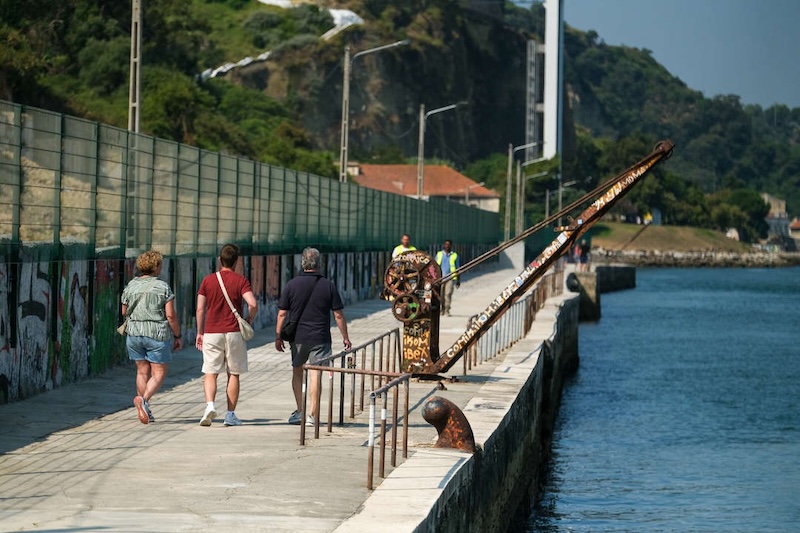Cais do Ginjal Redevelopment Project Advances in Almada Following Public Reopening
The ambitious redevelopment of the Cais do Ginjal waterfront in Almada has reached a preliminary milestone with the public reopening of the pedestrian promenade on July 31st, following a three-month closure for urgent safety interventions. The project, led by the Madeira-based developer Grupo AFA, is outlined in the Cais do Ginjal Detailed Plan, which was approved in 2020. The reopening signals a step forward in a complex urban regeneration initiative that has faced significant legal and logistical challenges but holds substantial promise for the region's real estate landscape. The initial phase involved the demolition of structures deemed at risk of collapse, a preventive measure to ensure public safety and prepare the ground for future works.
The full scope of the project proposed by Grupo AFA entails a capital investment of approximately €300 million. The master plan covers a 90,000-square-meter area and specifies the construction of a mixed-use complex featuring around 300 residential units, a 160-room hotel, and dedicated spaces for commercial and service-based businesses. The development also includes provisions for new social and cultural facilities, along with a structured parking garage with a capacity for 500 vehicles. This large-scale project is poised to significantly alter the character of the Cacilhas waterfront, transforming it from a stretch of post-industrial decay into a premier residential and tourist hub. Investors tracking large-scale projects can find further analysis in our Geographic and Sector Deep Dives blog.
The construction timeline for the main project remains contingent on the resolution of a significant legal impasse. The Agência Portuguesa do Ambiente (APA) has asserted that the land belongs to the public water domain, a claim that legally challenges Grupo AFA's development rights. The Câmara Municipal de Almada (CMA), led by President Inês de Medeiros, is reportedly mediating to find a solution, which may involve amending the detailed plan to overcome the deadlock. In a statement, Grupo AFA confirmed its commitment to the project, stating it will proceed 'as soon as all legal conditions are met.' The current phase of work, including the initial demolitions and securing the site, represents the developer's adherence to safety protocols while navigating the complex regulatory environment.
Need Expert Guidance?
Get personalized insights from verified real estate professionals, lawyers, architects, and more.
The architectural design and specific features of the planned buildings are expected to be modern while respecting the iconic setting opposite Lisbon. The project will require extensive regulatory approvals beyond the initial plan, including environmental licenses and construction permits for each phase. The intervention also necessitated addressing the informal settlement within the derelict buildings, where approximately 50 individuals were residing. The CMA activated a temporary support zone and, according to President Medeiros, municipal social services have since managed each case to find adequate housing solutions, clearing the site for safe intervention.
The project's financing is managed by Grupo AFA, a major player in the Portuguese construction and real estate sector. The successful execution of the development is expected to have a significant local economic impact, creating jobs during the construction phase and generating long-term commercial activity. The integration of new residences, a hotel, and shops will increase foot traffic and economic dynamism in Cacilhas. For foreign investors, navigating such a project requires expert legal advice, particularly concerning property acquisition and due diligence, services provided by professionals like English-speaking real estate lawyers.
The environmental impact of such a large waterfront development is a key consideration, with sustainability features and green building practices expected to be a central part of the final approved plans. The project will also necessitate significant infrastructure upgrades, including utility connections and improved access, to support the new complex. The initial reopening has been met with positive public interest, amplified by the location's international fame from appearances in popular media. Market interest and pre-sales activity for the residential and commercial units will likely be high once the project receives the final green light. Monitor new development opportunities at realestate-lisbon.com.





